Great Britain Is Imploding
Adelina Marini, June 18, 2016
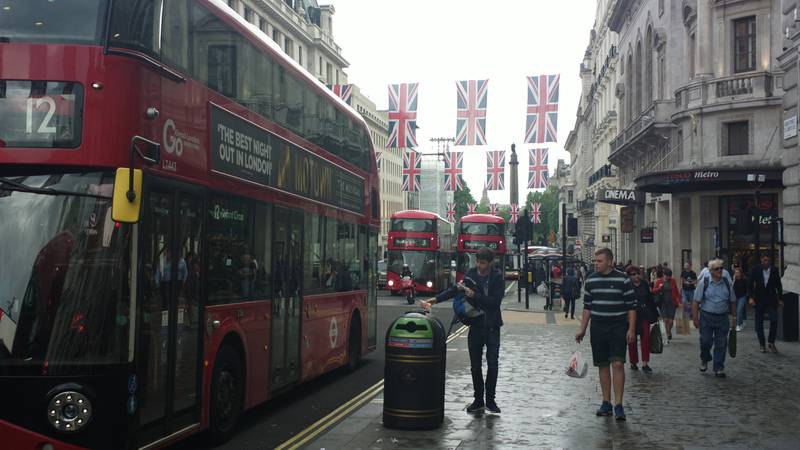
On June 23 Great Britain will make the momentous decision whether to stay in or leave the European Union. The decision is fateful not just to Great Britain itself, but for the entire EU and beyond. Instead of representing a triumph of democracy, however, the referendum is about to turn into a triumph of Trump-isation. The campaign claimed many victims, including human ones. It all began with the murder of political correctness, then a slow and systematic genocide of facts began, leading to the brutal murder of a member of the British Parliament in the street, in broad daylight, in the middle of the campaign.
A lot has changed since the Scottish referendum
A lot has changed since 2014 when the general rehearsal for the referendum of Great Britain’s leaving the EU was staged. Back then Scotland voted on remaining in the United Kingdom. The referendum campaign lasted two years and was a lesson in democracy, common sense, argumentation. The campaign was intelligent, flooded with facts, emotional, conscious of the fact that the decision would be fateful. The result was close, but unity forces prevailed. Two years later, there is no sign of that at all. The Brexit campaign is dominated by hate, manipulations, twisting of facts or outright wrong statements. The voices of reason are drowned in Trump-like outpourings, which make the hair of every European, whose DNA already deeply holds the memory of World War Two, stand up. The feeling of destiny is either completely absent, or is overexposed as the survival of British identity.
Europe at the moment is in the role of London, which was trying to persuade Scotland it is better to keep their union, that they will tackle their problems together, that they will fix the mistakes, that Scots’ demands will be heard and an answer to them will be found. The upcoming referendum is extensively discussed throughout the continent – with considerably more intensity in the euro area than the periphery – with the dominating theory being that Great Britain should stay, because Europe needs it just as much as the UK needs Europe. To some, Great Britain is not so important, but to others it is. In Croatia, for example, this subject rarely interests media and is difficult for it to occupy the front pages, especially considering the severe political crisis that the country is in.
Still, there are commentaries in media from time to time. Under the title “Should the EU cry over the Brits?”, Karlo Vajdić wrote [in Croatian language] on June 11 in tportal that a possible Brexit would cause economic shock in the EU, because the UK has a 10-20% share in the Union’s GDP. Without Great Britain the Union will no longer be the world’s greatest economy. The US will return to the leading place. Although this is just a statistical matter and the EU would still occupy second place, it will have a psychological effect, writes Vajdić. On the other hand, the Brexit will have no serious consequences, because the UK as a trading partner to Croatia is all the way at the 18th place. Tourism would feel the Brits’ exit, for last year British tourists 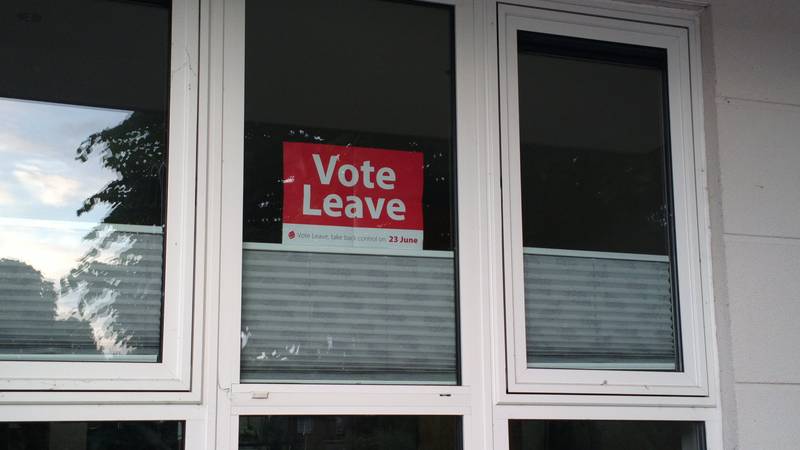 were half a million. In general, however, their exit could have a positive effect in the long run for strengthening the Union, further writes the author in tportal.
were half a million. In general, however, their exit could have a positive effect in the long run for strengthening the Union, further writes the author in tportal.
Germany is the country, which is most engaged with the upcoming referendum. The reason, according to the influential political weekly Der Spiegel, is that Germany has much more in common with Great Britain, than with Portugal, or Croatia. Der Spiegel started publishing in English as well. Last week the title page of the magazine called “Please don’t leave!”. All articles in the magazine, linked to the Brexit, are translated in English too, so that they could reach the British audience as well. In an editorial, the magazine states that if Great Britain is smart, it will stay, because it will understand that what is at stake here is the very future of the West. However, if the votes of older and less educated Brits prevail, Germany and the rest of Europe will need to accept that the Union is not functioning well and will have to take up its repair.
Ignorance killed membership
Alas, things on the other side of the Channel do not sound as constructive. This week the British tabloid The Sun was the first to announce a position by putting on first page a call to Great Britain to leave the EU. “We must set ourselves free from dictatorial Brussels”, writes the newspaper. “If we stay, Britain will be engulfed in a few short years by this relentlessly German-dominated federal state”, further claims the paper from its first page, which looks like it was fabricated in the Kremlin. The Sun is one of the most sold newspapers in Great Britain. And this is just part of the madness, poured over British citizens by Trumparoid politicians like Boris Johnson, Michael Gove, and others, who spread hate and false facts.
They compare Brussels with Hitler to the horror of the still living witnesses of his brutal regime, they rape facts and offer illusions not backed by solid arguments. To the point where one of the authors of contemporary British Euroscepticism – Nigel Farage – publicly admitted that he has no clue what will happen with Great Britain, should it exit. Public space is overflowing with texts about the Brexit and this has been going on for years, much before the date was set. Articles, even in respectable media and coming from respectable experts, contain statements, showing weak understanding of the mechanisms, moving the European Union and what exactly is Great Britain’s role in it.
For example, Ambrose Evans-Pritchard wrote a long commentary for The Telegraph’s business-section, saying that he will vote for leaving the Union. “We are deciding whether to be guided by a Commission with quasi-executive powers that operates more like priesthood of the 13th century papacy than a modern civil service” -- an idea that can be heard under one guise or another on the Island. The European Union, with all its shortcomings, is such, as was built by its member states. The Commission is too far away from an executive body, and the claims for centralised decision-making sound particularly ridiculous at the background of the European semester, which was conceived as a large integration step forward, as a tool for the prevention of future crises, but for all practical purposes does not work and the EC has not up to this day levied any sanctions for disregarding commonly approved rules.
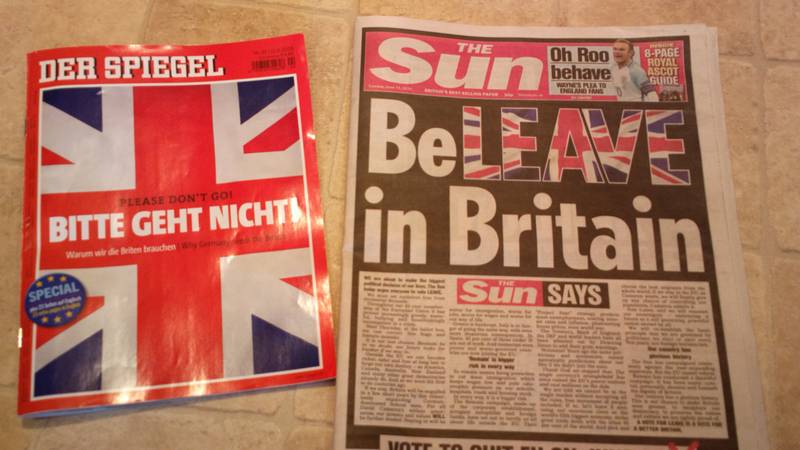 The Union has always been the result of the battle between Eurofederalists and Eurosceptic forces. What supported it so far is the desire and will of its members to be together in it. Great Britain is the least integrated member state of the EU – it is neither a member of the euro area, where integration is the deepest, nor in Schengen. It has opt-outs for many EU policies. This renders claims that the country’s laws are made in Brussels utterly ridiculous. Nothing is produced in Brussels without the knowledge and accessory of Great Britain – its elected members and clerks. Moreover, Prime Minister David Cameron managed to twist “Brussels”’ arms with the deal he won a few months ago. It will detach Britain further from the Union, if it stayed in the Union, similar to the concessions London promised to make to Scotland two years ago.
The Union has always been the result of the battle between Eurofederalists and Eurosceptic forces. What supported it so far is the desire and will of its members to be together in it. Great Britain is the least integrated member state of the EU – it is neither a member of the euro area, where integration is the deepest, nor in Schengen. It has opt-outs for many EU policies. This renders claims that the country’s laws are made in Brussels utterly ridiculous. Nothing is produced in Brussels without the knowledge and accessory of Great Britain – its elected members and clerks. Moreover, Prime Minister David Cameron managed to twist “Brussels”’ arms with the deal he won a few months ago. It will detach Britain further from the Union, if it stayed in the Union, similar to the concessions London promised to make to Scotland two years ago.
The claims that British democracy is holier than continental democracies are ridiculous as well. It is a fact that British parliamentary democracy is the oldest and inspired political evolution on the other side of the Channel as well. It is also a fact that current tendencies for raping democracy following the Trump model has not passed Great Britain over. Crossing the thin red lines of political correctness, disrespect for the right of a different opinion, not sticking to facts and spreading hate, combined with xenophobia and racism are a sinister replacement of democracy. The language of a large part of those preaching Brexit actually questions whether British citizens are going to make an informed decision next Thursday. Misleading voters, whether knowingly or not, with the prospect of deriving political dividends is all but a triumph of democracy.
The referendum in Greece last year happened on a similar scenario, labelled as not complying with democratic standards by the Council of Europe. What changed in Great Britain since 2014 – from a referendum, which will remain in textbooks as a triumph of democracy, to a referendum, which can be compared to the Greek one of last year, and Greece also claims to be the cradle of democracy, even before Great Britain? This is a question, which the Brits will have to answer in the following months and years. Democracy is not granted. It is a fragile structure, which depends on the behaviour and standards of politicians. And the EU could be as successful a project as its integral parts wish it to be. It is incorrect to speak of the EU as an entity, which Great Britain has nothing to do with and it just happened without its participation.
One of the loudest examples, illustrating this, is the “victory”, which David Cameron won in the negotiations of the common European budget for the 2014-2020 period. The budget was nominally decreased for the first time in its history, regardless of the Union being significantly larger now, and so are its needs. Were it not for the refugee crisis, the trimmed budget would have probably gone unnoticed. Now it is felt, however. Examples are many. But you’d never read about them in British press. And this is the most fundamental difference with the Scotland referendum. In the European referendum the EU has been “democratically” cut off from the campaign and its point of view cannot break through, regardless of the fact that it will have to deal with almost the same impact from a possible Brexit. And we are talking about the point of view of 27 more member states – each with its own particulars and historic legacy.
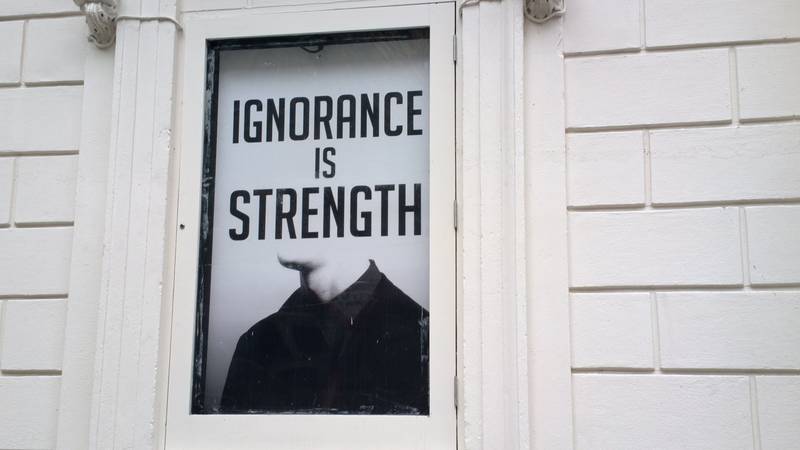
Regardless of what will happen on June 23rd, Pandora's box has already been opened. Destructive Eurosceptic forces are still weak in the EU and reason could still prevail there. Great Britain, however, is in a process of implosion, which is already leaving bloody footprints behind itself. This means another source of instability on the Westernmost flank of the EU - exactly where no one ever expected threat coming from. Euroscepticism has a price. Unfortunately, just like with the destructive ideologies of the 20th century, this price is high.
Translated by Stanimir Stoev
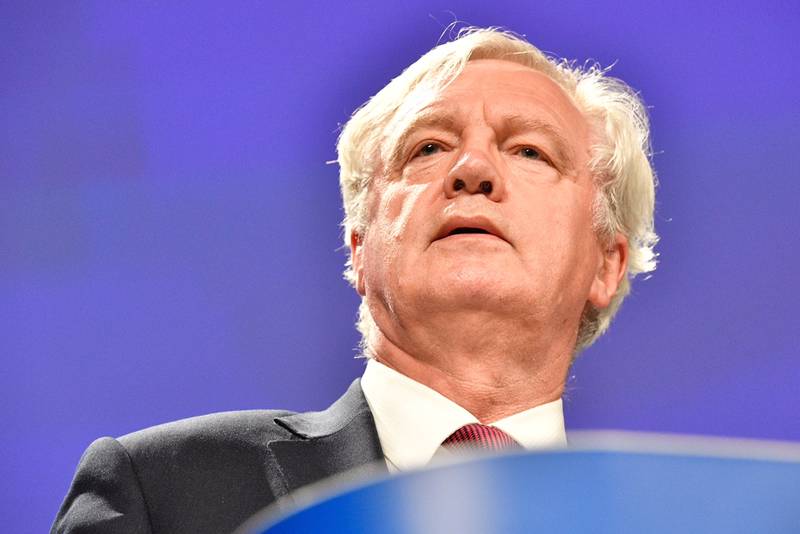 David Davis | © European Commission
David Davis | © European Commission Angela Merkel | © Council of the EU
Angela Merkel | © Council of the EU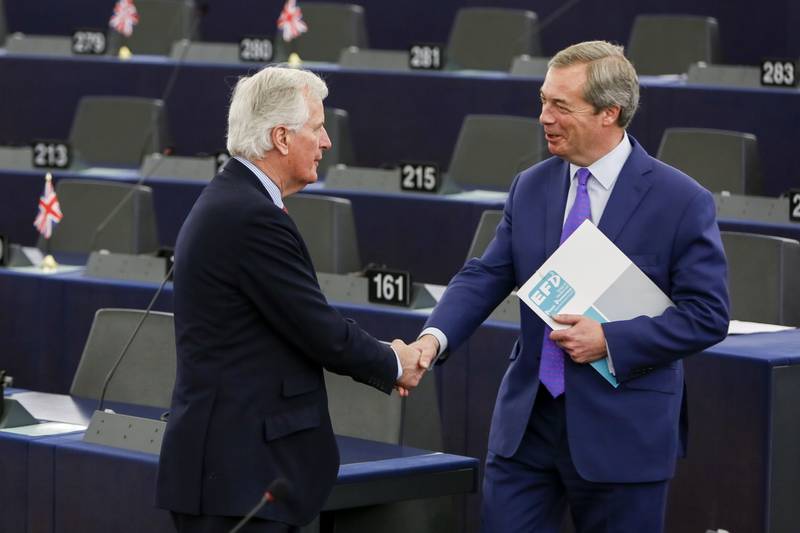 Michel Barnier, Nigel Farage | © European Parliament
Michel Barnier, Nigel Farage | © European Parliament